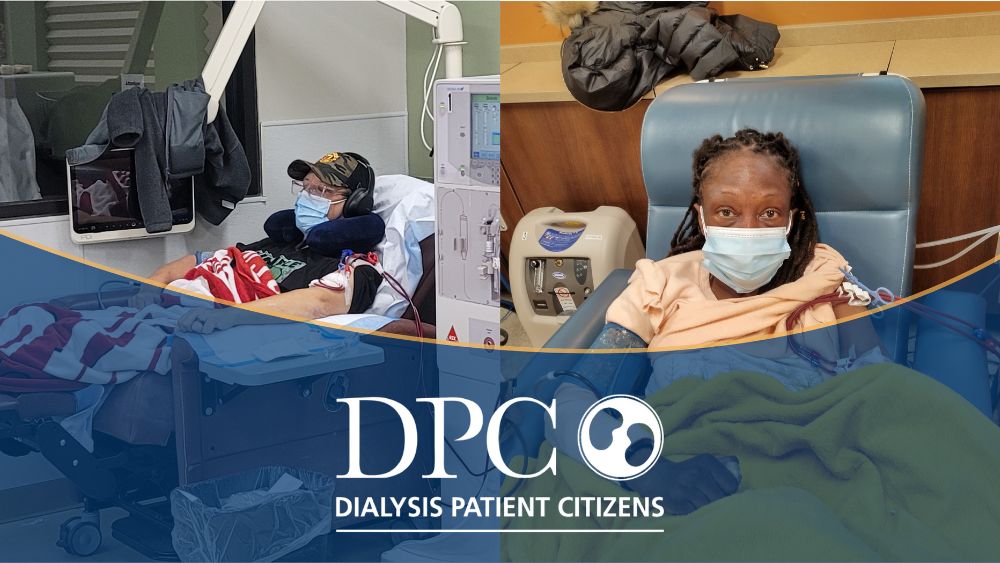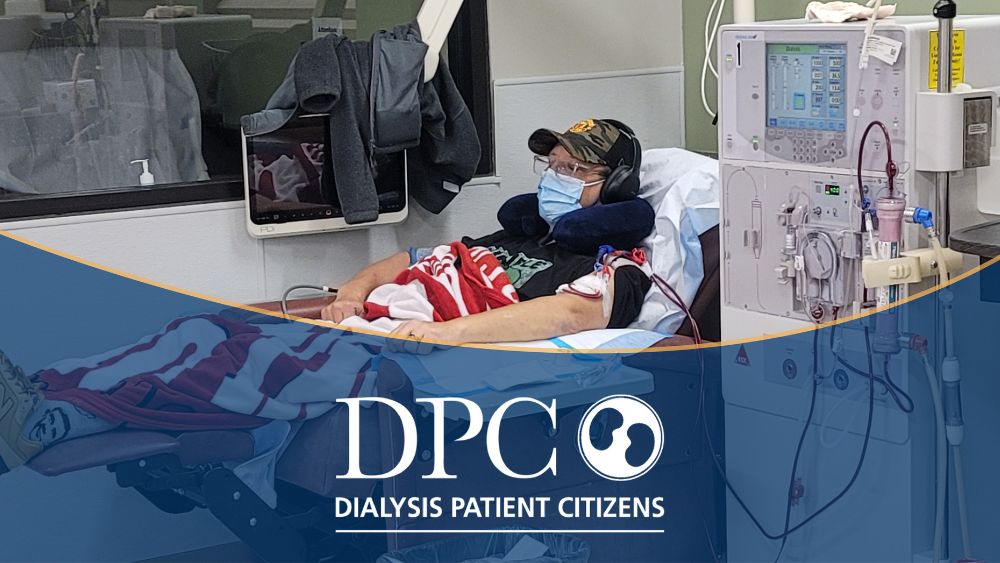| | | | | | | Presented By Dialysis Patient Citizens | | | | Axios Vitals | | By Tina Reed · Dec 16, 2022 | | 😎 Happy Friday, Vitals readers. In case you missed it: Everything you think you know about stress and high blood pressure just might be wrong, Axios' Jennifer A. Kingson explains. Today's newsletter is 960 words, a 3.5-minute read. | | | | | | 1 big thing: Changing the way we think about rapid tests |  | | | Illustration: Sarah Grillo/Axios | | | | The COVID-19 rapid tests that public health officials are counting on to help fight a wintertime surge may not give an on-the-spot picture of whether a person is infected. - And that could influence the way people approach the holiday season, Axios' Sabrina Moreno and Arielle Dreher report.
Driving the news: The FDA last month urged repeat testing after a negative result to reduce the risk of missing an infection amid concerns rapid tests aren't sensitive enough for early detection. - But that guidance may not resonate with people eager to be done with COVID, or those consumed with holiday obligations and navigating a "tripledemic" of respiratory diseases.
- Even the willing can get confused over how much testing is enough, epidemiologist Michael Mina told Axios. "How does the average person know? That's why the best advice at this point in time, and really for any viruses, is if you don't feel well, probably don't go out."
- Questions about some of the antigen tests surfaced this week after the FDA announced the voluntary recall of more than 11,000 tests from Detect Inc. amid concerns they may give false negative results.
By the numbers: Early in the pandemic, before COVID vaccines and multiple variants, rapid antigen tests had a much higher sensitivity, where 95% of results were true positives, Marc Sala, co-director of the Northwestern Medicine Comprehensive COVID Center, told Axios. - With omicron in an asymptomatic and vaccinated person, that sensitivity might be closer to 25%.
- A PCR test, in contrast, can detect the most minute amounts of SARS-COV-2 in a person for an average of 18 days, Bob Wachter, chair of the Department of Medicine at the University of California in San Francisco, told Axios.
- But PCR testing takes longer to process and can be less accessible, making rapid tests the practical choice when people need to know fast if they are infectious and need to isolate, Mina said.
Be smart: Understanding the limitations of testing could lead to better decision-making ahead of holiday gatherings. Go deeper |     | | | | | | 2. Historic flu season may be peaking |  Data: CDC; Chart: Sara Wise/Axios The U.S. may be getting pummeled by respiratory illness, including a harsher flu season than we've seen in years. But new data indicates the outbreak may be peaking. Yes, but: That doesn't mean a quick exit. - It's another reminder of what a bizarre respiratory virus season we've been experiencing, not a license to let our guard down, experts tell Axios.
State of play: Experts predict the outbreak will morph into regional waves of illness that will extend into early spring which could stress health systems and collide with COVID. - It would be a fitting conclusion to a flu season that's defied expectations, with the highest number of confirmed cases and hospitalizations in more than a decade showing how immunologically unprepared we were after two years of lockdowns.
What they are saying: "This is unprecedented," said Alex Davidson an epidemiologist for Kinsa, a company that forecasts infectious disease outbreaks with the help of smart thermometers. - "Typically what we see is, after the holidays, after Christmas and New Year's, illness starts to increase and it peaks in late January, early February and then declines," Davidson said.
- But with so many illnesses hitting at once so early in the season — flu is likely to peak closer to next week, he said — the forecast projects we'll see sustained elevated levels of illness for some time after that.
- "Between essentially Oct. 16 and early March, we're looking at a lot of illness," Davidson said.
The bottom line: Flu shots remain important since the virus is expected to continue circulating for some time, leaving the unvaccinated highly vulnerable. - Some good news: The CDC recently reported it appears the flu shot was a good match for the strain that's circulating this year.
Share this story |     | | | | | | 3. Nearly 4 in 10 parents oppose measles vaccine rules |  Data: KFF Covid-19 Vaccine Monitor, Pew Research Center; Chart: Jacque Schrag/Axios Nearly 4 in 10 parents oppose school vaccination requirements for measles, mumps and rubella, an apparent byproduct of vaccine skepticism that took root during the pandemic, according to a new report from the Kaiser Family Foundation, Axios' Oriana Gonzalez writes. Why it matters: Childhood vaccination rates are at a low in the U.S. and short of the immunization level needed to reach the herd immunity necessary to protect against measles, estimated to be 95% or higher, according to a November report from the CDC and WHO. The big picture: KFF researchers said that debates over COVID vaccine requirements and mandates "appear to have had an impact on public attitudes towards MMR [measles, mumps and rubella] vaccine requirements for public schools." - In the KFF survey, conducted between Nov. 29 and Dec. 8, 28% of adults overall said that parents should be able to choose to not vaccinate their children, even if it creates a health risk for others. That compares to 16% in a 2019 Pew Research Center poll.
- 35% of parents of children under 18 years old said they should get to choose whether to give their children the MMR vaccine, up from 23% in the 2019 Pew poll.
- The increase was most pronounced among Republican adults: 44% said parents should get to choose, over double from 20% in 2019.
|     | | | | | | A message from Dialysis Patient Citizens | | Dialysis patients are speaking out | | |  | | | | Dialysis patients are at risk of losing their insurance coverage — but there are steps you can take to help. Why it's important: Kidney disease requires hours of treatment every week; patients deserve to make the best choice for their health coverage. Hear their stories. | | | | | | 4. Quote du jour |  | | | Federal Reserve Board Chairman Jerome Powell. Photo: Alex Wong/Getty Images | | | | "Close to a half a million who would have been working ... died from COVID." — Federal Reserve Board Chairman Jerome Powell on the U.S. labor shortage and impact from COVID. |     | | | | | | 5. Catch up quick | | 🏥 How a sprawling hospital chain ignited its own staffing crisis. (The New York Times) 👉 Why so many rich countries are facing antibiotic shortages this winter. (Quartz) 👀 Health care's default risk rises. (Axios) |     | | | | | | 6. Dog of the week |  | | | Bruno. Photo: Meghan Phillipp | | | | Meet Bruno, also known as "Bruno the Brew Dog" on Insta, a terrier mix adopted by Meghan Phillipp, executive director of HC3, Health Care Council of Chicago. - "I say he has 'little BDE' or Big Dog Energy, because he acts with the authority of a dog twice his size," Phillipp writes.
- "In the warmer months, he enjoys long city walks and hanging out at brewery patios in Chicago. And, in winter, he curls up into a donut for Netflix and chill times on the couch," she says.
|     | | | | | | A message from Dialysis Patient Citizens | | Dialysis patients deserve to choose their family's health coverage | | |  | | | | Dialysis patients didn't choose kidney disease, but now they are forced to endure hours of treatment every week and are at risk of losing their insurance coverage. Get involved: Watch and listen to the patients fighting to protect their family's choice of health coverage. Learn more. | | | | Thanks for reading, and thanks to senior editor Adriel Bettelheim and copy editor Azi Najafi for the edits. Did someone forward this email to you? Here's how to sign up. |  | | Your personal policy analyst is here. | | | | | | Axios thanks our partners for supporting our newsletters. If you're interested in advertising, learn more here.
Sponsorship has no influence on editorial content. Axios, 3100 Clarendon Blvd, Arlington VA 22201 | | | You received this email because you signed up for newsletters from Axios.
Change your preferences or unsubscribe here. | | | Was this email forwarded to you?
Sign up now to get Axios in your inbox. | | | | Follow Axios on social media:    | | | | | |
No comments:
Post a Comment